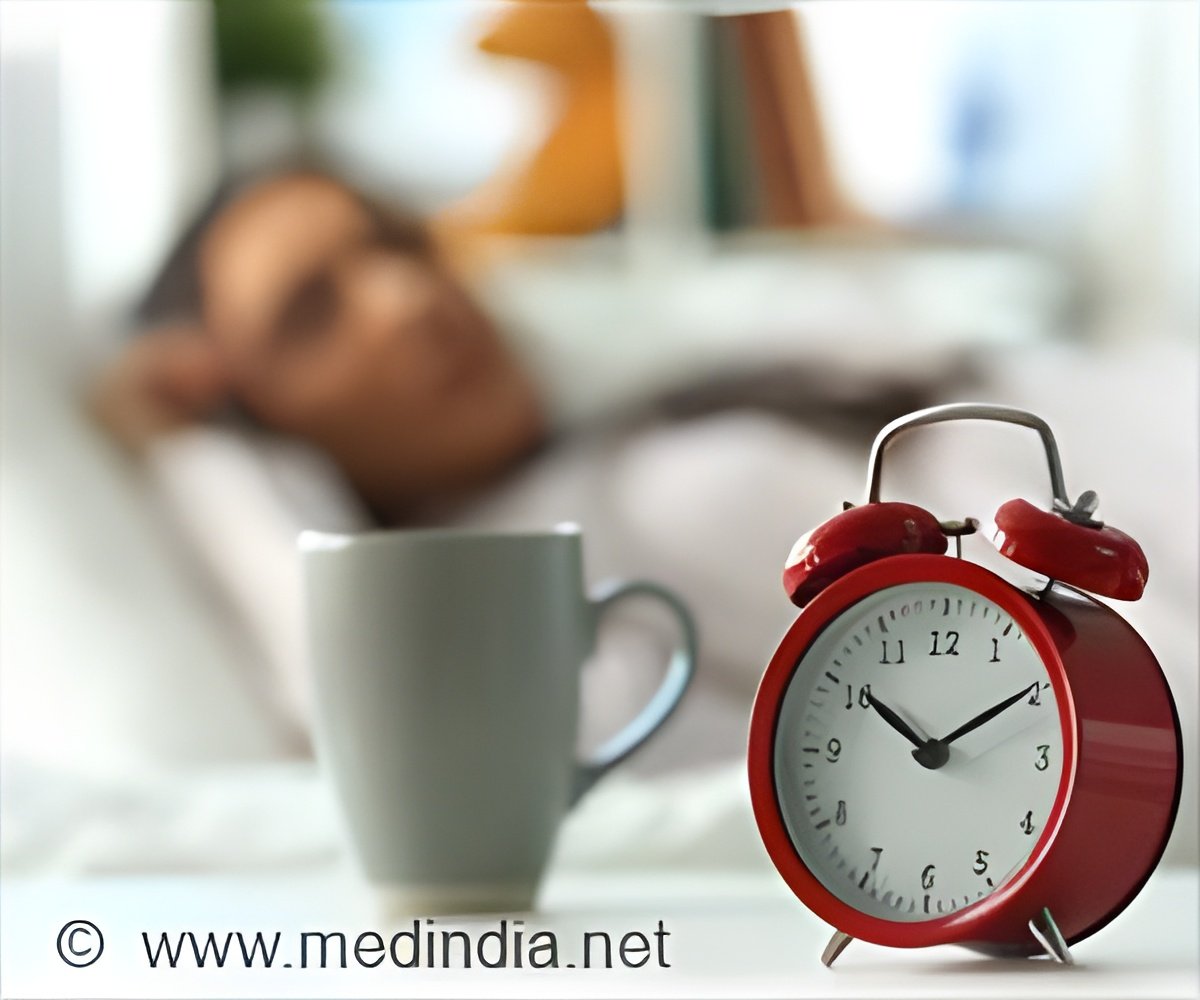The onset of daylight saving time (DST), commonly known as summer time, can affect your overall health and lead to unhealthy lifestyle habits.

Spring Forward = Fall Back? the Effect of Daylight Saving Time Change on Consumers' Unhealthy Behavior
Go to source).
‘Daylight saving time (DST) triggers unhealthy lifestyle habits. So, don't let daylight saving time ruin your overall health and well-being. #DaylightSavingTime #DST #Medindia’





Advertisement
What is Daylight Saving Time?
Daylight saving time (DST), also known as daylight savings or summer time, is the yearly practice of setting clocks forward by one hour in spring or late during the winter months.Changing clocks twice a year is a tradition for most people living in the United States, with the spring transition to daylight saving time raising the ire of many due to the loss of an hour of sleep.
Public policy makers are grappling with the question of whether to abolish the biannual time change and, if so, whether to make standard time or daylight saving time permanent. While sleep scientists call for year-round standard time because it best aligns with humans’ circadian rhythms, many retailers and outdoor industries support permanent daylight saving time, arguing that longer sunlight in the evenings supports their business. It is thus crucial to further illuminate the consequences of the current policy to better inform policy makers, managers, and consumers.
This new Journal of Marketing study explores whether the onset of daylight saving time leads consumers to engage in unhealthy behaviors. The researchers examine social media data from X (formerly Twitter) to study consumer responses to the onset of daylight saving time. They say that “the number of tweets with keywords related to the disruptive nature of the switch to daylight saving time peaked around 12 hours after the change occurred. We also find that the volume of negatively toned tweets rose more substantially, indicating a stronger increase in negative sentiment toward the time change. Overall, our preliminary findings suggest that consumers respond negatively to the switch to daylight saving time.”
Advertisement
Daylight Saving Time Affects Diet and Exercise
The study then examines two unique disaggregate level datasets that capture two different consumer behaviors: snack consumption and fitness center visits. The first dataset captures consumers’ real-time snack consumption in their natural environments while the second dataset tracks the attendance records of customers visiting fitness centers. To understand consumer behavior following the onset of daylight saving time, the researchers compare consumers’ calorie consumption from packaged snacks and visits to fitness centers across two customer groups: those who are affected by the onset of daylight saving time (the treatment group) and those who are not affected by the onset of daylight saving time (the control group), before and after the onset of daylight saving time.Results show that:
- calorie consumption from largely unhealthy snacks increases following the time change and
- visits to fitness centers decrease.
Advertisement
Simple Ways to Get Rid of Daylight Saving Time
Encourage Public Policy Makers to End the Time Changes
“Our study indicates that the onset of daylight saving time is an obstacle to consumers’ health goals, suggesting that policy makers should continue trying to end the time changes. Further, from a consumer well-being perspective, public health campaigns promoting healthy eating and exercise might be especially necessary around the time change,” the research team advises.
Consumers Should Stop Daylight Savings and Turn to Healthy Lifestyle
Consumers can emphasize self-control strategies such as avoiding stocking up on unhealthy snacks before the time change. Conversely, fitness center members might plan activities close to the center to reduce the effort required to visit it following the time change. Consumers vulnerable to self-control failures might also seek support from peers (e.g., online social networks) and platforms incentivizing healthy behavior (e.g., through gamification).
Novel technologies, such as smart circadian lighting systems, might also help consumers reset their circadian clocks in a less disruptive fashion. Apps originally designed for travelers to reduce jet lag can be used to minimize the effect of the time change.
Chief Marketing Officers Should Offer Incentives to Tackle Daylight Savings
Firms involved in health-related industries can use these insights to anticipate demand and to better serve their customers around the onset of daylight saving time. For instance, when daylight saving time starts, fitness centers could offer promotions like free coffee or a competition or event to bring people in and counter their tendency to skip exercising.
Reference:
- Spring Forward = Fall Back? the Effect of Daylight Saving Time Change on Consumers’ Unhealthy Behavior - (https://journals.sagepub.com/doi/10.1177/00222429241256570)
Source-Eurekalert









